Remembering R. S. Brackman: A Principal’s Impact on Quincy High School
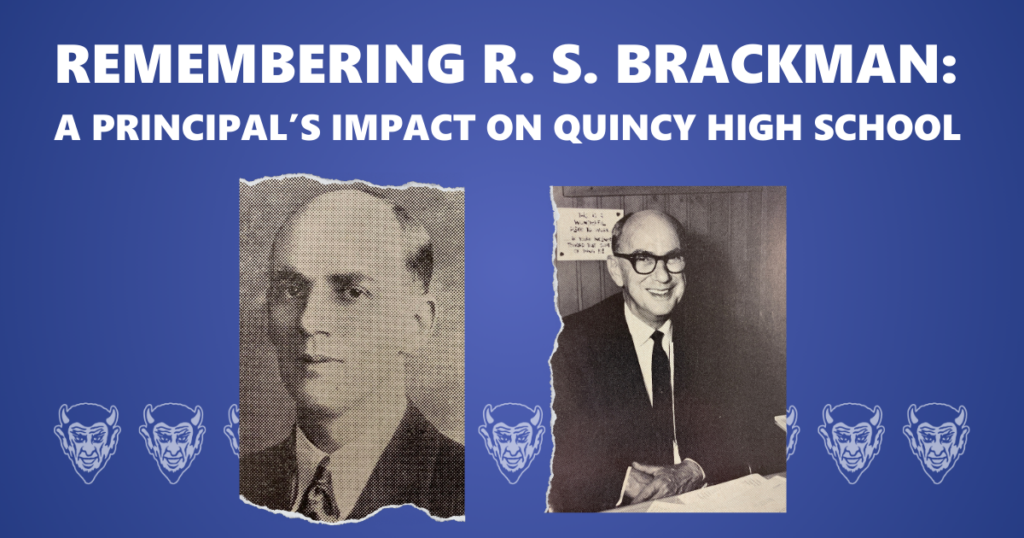
Within Quincy’s educational history, the name R. S. Brackman stands out as a dedicated and influential figure. Serving as the principal of Quincy High School from 1937 to 1967, Mr. Brackman left an indelible mark on both the institution and the lives of countless students.
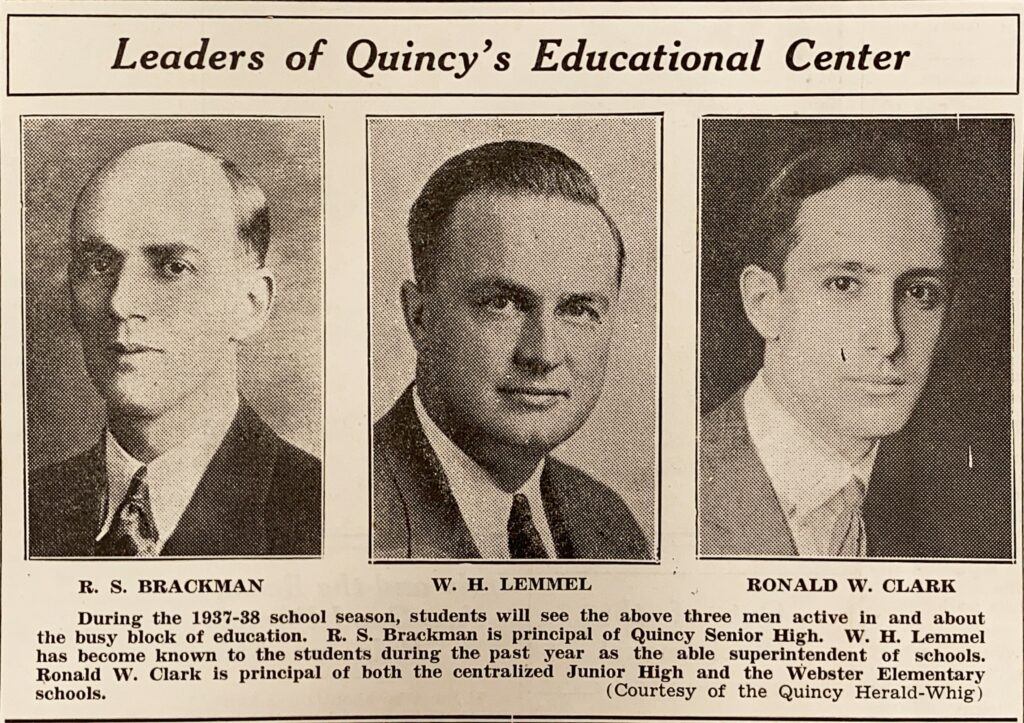
Mr. Brackman’s significant contributions to Quincy High School during his tenure helped shape the institution into what it is today. His visionary approach included pioneering the shift from a percentage-based grading system to the adoption of letter grades, a change that streamlined the assessment process for students.
During Brackman’s time at QHS, the introduction of the counseling system marked a pivotal moment in the school’s commitment to student support and guidance. Additionally, he played a pivotal role in the construction of Quincy Senior High 1 which was completed in 1957. This relocated the high school from the facility at 14th and Maine, now Quincy Junior High School, to their new facility at 30th and Maine, now Baldwin Elementary School. The addition of an Assistant Principal position to the staff came that same year.
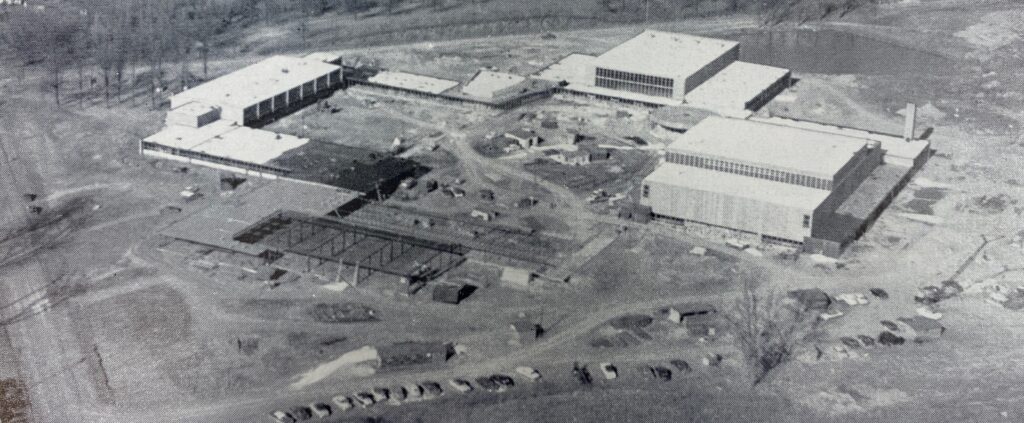
Mr. Brackman’s administration also implemented progressive measures such as mailing report cards home, initiating the Curriculum Demonstration program, and introducing bus transportation and a closed noon hour. Notably, his leadership witnessed a surge in community interest in the athletic programs, coupled with an evident elevation in their overall caliber. These achievements collectively showcase Mr. Brackman’s instrumental role in shaping Quincy High School into the esteemed institution it has become today.
“Mr. Brackman was the principal when my dad taught at QHS from 1931 to 1944 and was still the principal when my Class of 1957 was the last one to graduate from the old building at 14th and Maine. I always enjoy remembering those who made a big impact on me. We used to call Mr. Brackman ‘Old Baldy’, and while he could be strict when necessary, he was usually a very pleasant person. My parents liked him and his wife Bess very much, and he was always very good to me when I was a student,” said Dr. John Sallstrom ‘57.
Mr. Brackman was also a strong supporter of QHS athletics. His commitment to the school’s athletic program, evident through the lottery sales system for state tournament tickets, showcased his dedication to fostering community support for the Blue Devils. A true friend of athletics, Mr. Brackman’s contributions were recognized as he became a charter member of the Quincy High School Sports Hall of Fame.
Mr. Brackman’s impact on the community was extensive. Upon his retirement from Quincy High School in 1967, Mr. Brackman could have put work and public service behind him. Instead, he began working and advocating for the interests of retired teachers and the elderly through roles at the Illinois Retired Teachers Association, the Adams County Senior Citizens Council, the United Way, and in establishing pre-retirement programs at local industries. He also served on the Red Cross board, Community Chest, chairman of the legislative committee of the Illinois Retired Teachers Association and worked with seniors through the AARP program. He was a lifetime member of the National Education Association and the Illinois High School Principals Association. In 1977, he was the recipient of the Exchange Club’s 25th anniversary Golden Deeds Award earned for the positive impact he had on countless lives. Mr. Brackman may have been a retired educator, but he was not a retired citizen.
In 1983, the Quincy community mourned the loss of R. S. Brackman. His legacy lives on through the memories of those he influenced and the enduring impact he had on Quincy High School. Dr. Sallstrom’s memories are a testament to the lasting impression this esteemed principal left on the community he served for over three decades. Upon his retirement, Mr. Brackman published a letter to the students of Quincy Senior High School in The Q Review. His words still ring true today.
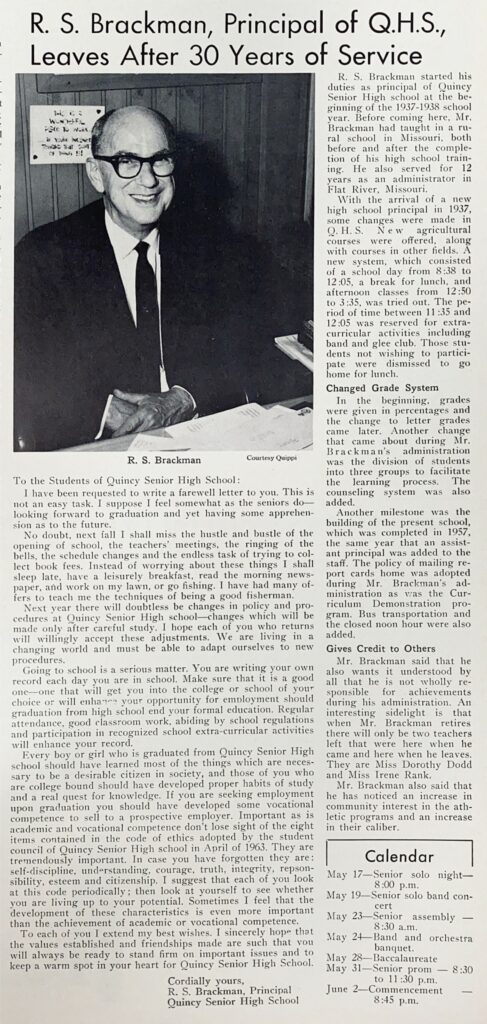
“Every boy or girl who is graduated from Quincy Senior High School should have learned most of the things which are necessary to be a desirable citizen in society, and those of you who are college bound should have developed proper habits of study and a real quest for knowledge. If you are seeking employment upon graduation, you should have developed some vocational competence to sell to a prospective employer. Important as is academic and vocational competence, don’t lose sight of the eight items contained in the code of ethics adopted by the student council of Quincy Senior High School in 1963. They are tremendously important. In case you have forgotten they are: self-discipline, understanding, courage, truth, integrity, responsibility, esteem and citizenship. I suggest that each of you look at this code periodically; then look at yourself to see whether you are living up to your potential. Sometimes I feel that the development of these characteristics is even more important than achievement of academic or vocational competence.
To each of you I extend my best wishes. I sincerely hope that the values established, and friendships made are such that you will always be ready to stand firm on important issues and to keep a warm spot in your heart for Quincy Senior High School. “
Cordially yours,
R. S. Brackman, Principal
Quincy Senior High School
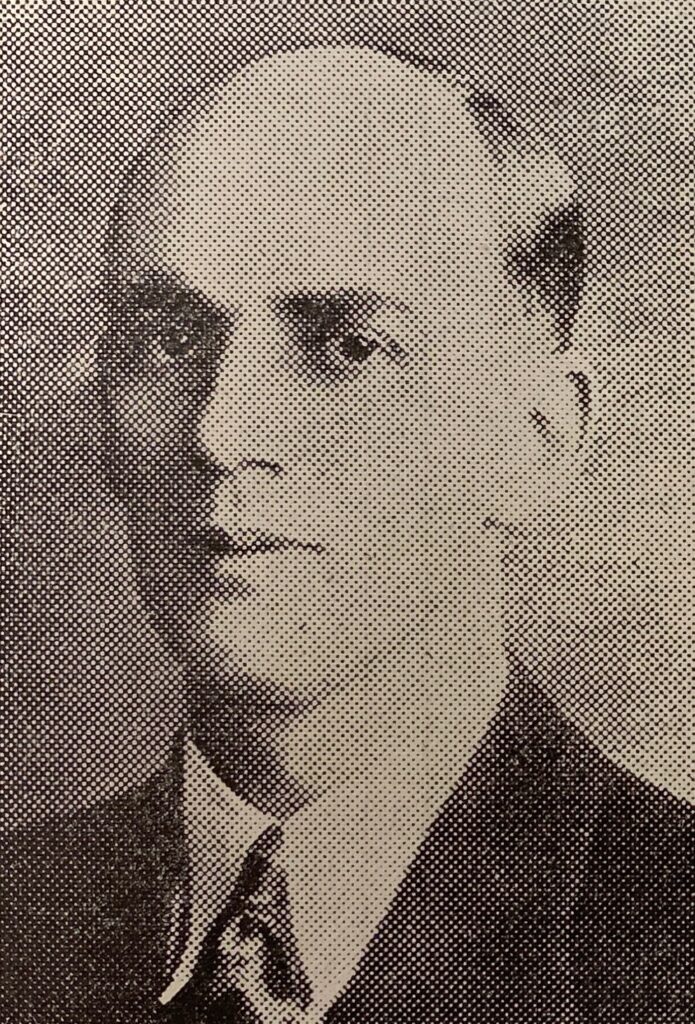
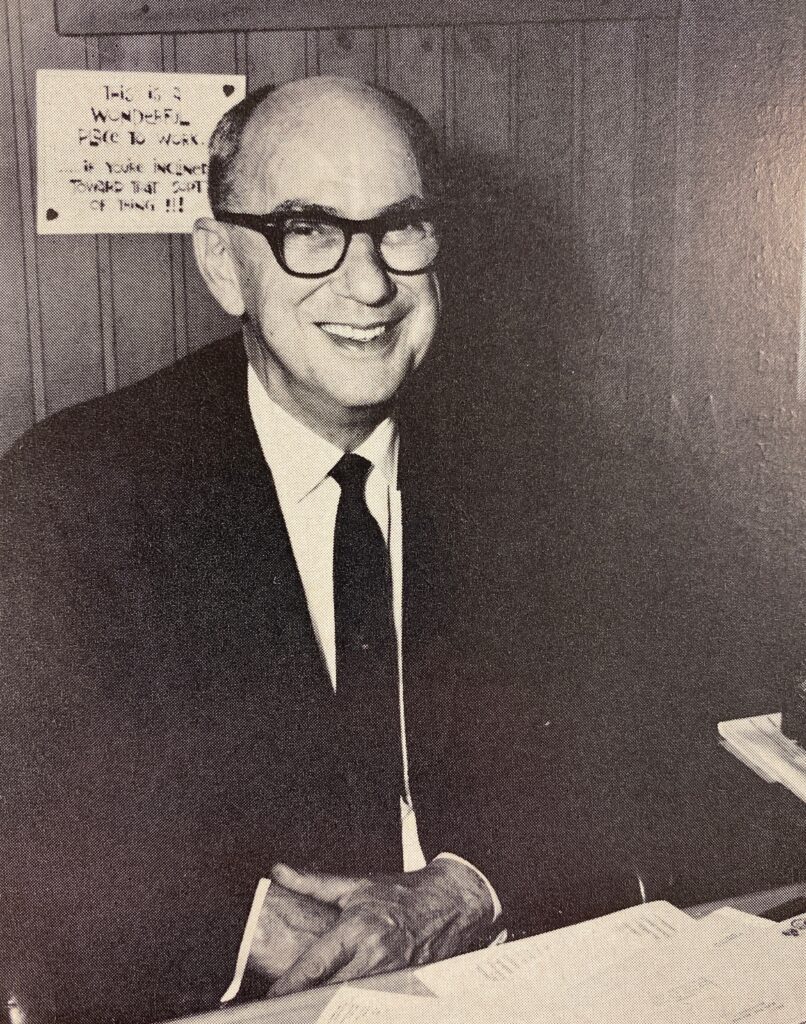
Dr. John E. Sallstrom, QHS alum class of 1957, recently took the time to send some recollections of his interactions with Mr. Brackman and others in the QPS community from when he was young.
One such memory comes from the annual QHS Journalism Banquet held on February 28, 1957, where, while standing in front of the room, a young Dr. Sallstrom momentarily forgot his speech.
“The year I was chosen to be editor of the Q Review, I had to make a speech at the journalism banquet. I had memorized what I wanted to say, but in the pressure of the moment with principal R. S. Brackman and superintendent Dr. L. O. Little present, I forgot what I was going to say. The only thing I could think to do was tell a joke so everyone would laugh at it instead of at me. I was so embarrassed afterwards I thought I would never try to speak in public again! Mr. Brackman still encouraged me to keep trying.”
“I don’t recall he ever complained about anything I wrote in the student paper! I do remember the joke I told so everyone would laugh at it instead of at me. It is in a book of ‘Toasts and After-Dinner Stories’ that my dad got in 1924 when he first started teaching in Eagle City, OK. The joke is titled ‘An Inspiring Telegram’ and says:
“On the first day that a young man began his duties as a reporter on a popular paper, a report came from a nearby town that there was a terrible fire raging. The editor of the paper immediately sent the new reporter to the place, and, upon arriving there, he found that the firemen were unable to get control of the fire, so he sent this telegram to the editor: ‘Fire still raging. What shall I do?’ The editor thought a minute, and then sent back this message: ‘Find out where the fire is the hottest and jump in.’”
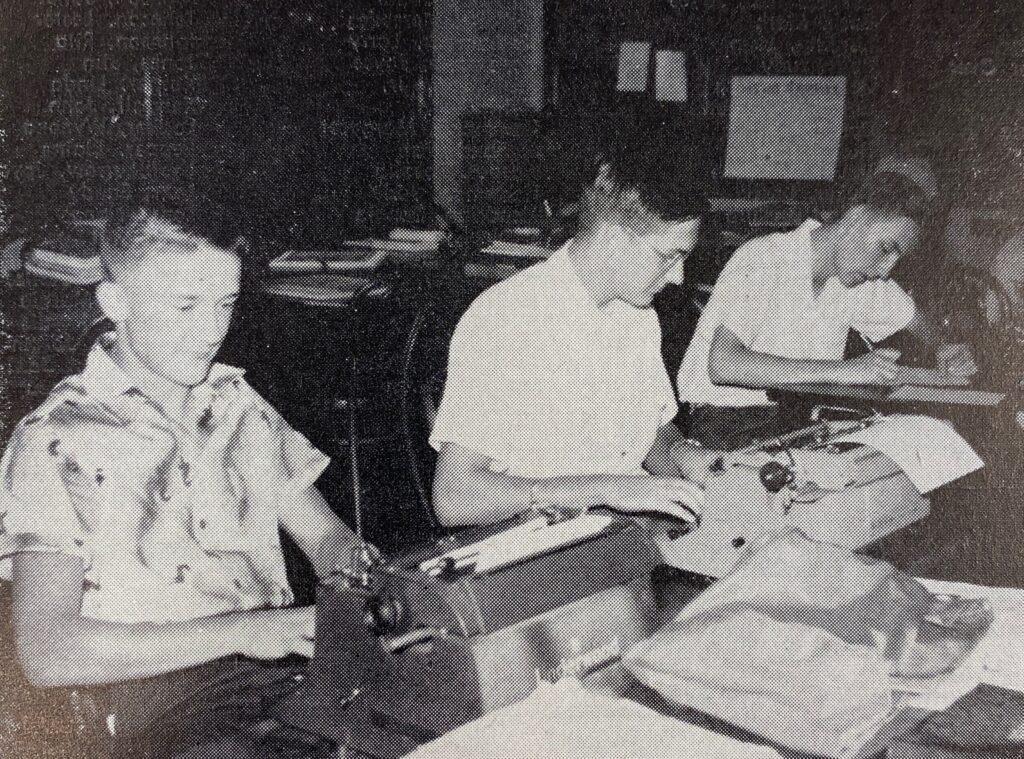
“My journalism teachers, Dr. Robert E. Meyer in Junior High, and Mary Louise Musselman at QHS, did encourage me to jump into some fires, as I later did also working at the Herald-Whig. I remember one afternoon we got a call about a big fire in Fort Madison, IA. The photographer drove 90 mph to get there and back in time for us to get the story for the morning paper! That was a wild experience!”, said Sallstrom.
Dr. Sallstrom also recalled Mr. Brackman’s transition from principal to the first business manager for a local church, showcasing his commitment to community service. Facing financial challenges at the church, Mr. Brackman’s leadership ensured stability, leaving an enduring legacy in the hearts of those he served.
“Mr. Brackman was a member of the Presbyterian Church, but he agreed to be the business manager at Salem to help straighten out the finances. I remember Uncle Paul used to go to the church with him on Monday mornings to sort out and count the Sunday offerings. Rev. Ed Kohlmann once told me they had a train called the Nickel Plate running down the aisle every Sunday! There was always plenty of loose change to count and wrap for bank deposits. I don’t know how long Mr. Brackman stayed at Salem, but he left the finances in good shape”, said Sallstrom.


